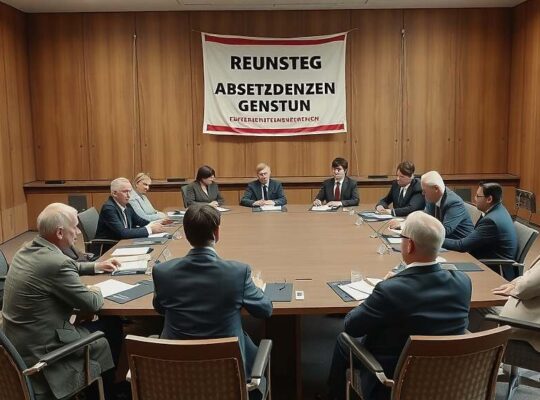Internal divisions are threatening to derail the German coalition government’s planned pension reform package, despite assurances from CDU parliamentary group leader Jens Spahn that an agreement will be reached by year’s end. The proposed legislation, a cornerstone of the coalition accord between the conservative CDU/CSU and the Social Democratic Party (SPD), aims to temporarily suspend the sustainability factor in the pension formula until 2031, allowing for significantly increased pension payouts.
Spahn, in a televised statement, emphasized the necessity of compromise, stating that a successful outcome requires all parties to “move” from their initial positions. He declined to elaborate on strategies for appeasing the Junge Union (JU), the youth wing of the CDU, who have vocally opposed the proposed reforms and are reportedly aligned with the Bundestag’s younger parliamentary group.
The JU’s resistance highlights a deeper ideological rift within the conservative ranks. Johannes Winkel, chairman of the JU, reiterated his organization’s support for the core principles of the coalition agreement but strongly condemned the proposal to permanently enshrine the increased pension expenditure. Winkel warned that the long-term financial implications beyond 2031 should be addressed by the independent pension commission, demanding an open and comprehensive discussion, crucially, accompanied by concrete counter-funding measures.
The JU’s concerns underscore a growing unease regarding the government’s fiscal responsibility. While acknowledging the political necessity of fulfilling the coalition agreement, the youth wing insists on avoiding premature commitments on future pension liabilities without a transparent framework for financial balancing.
The current government draft would allow pension increases exceeding current legal provisions by two percentage points until 2031. However, the JU’s insistence on preventing this specific increase from becoming a permanent fixture suggests a principled objection to enshrining unsustainable commitments without a clear long-term plan. The continuing dispute exposes the fragility of the governing coalition and raises questions about the prospect of genuine pension reform amidst conflicting priorities and internal political pressures. The coming weeks are critical in determining whether the government can bridge this divide or risk further fracturing its fragile consensus.












